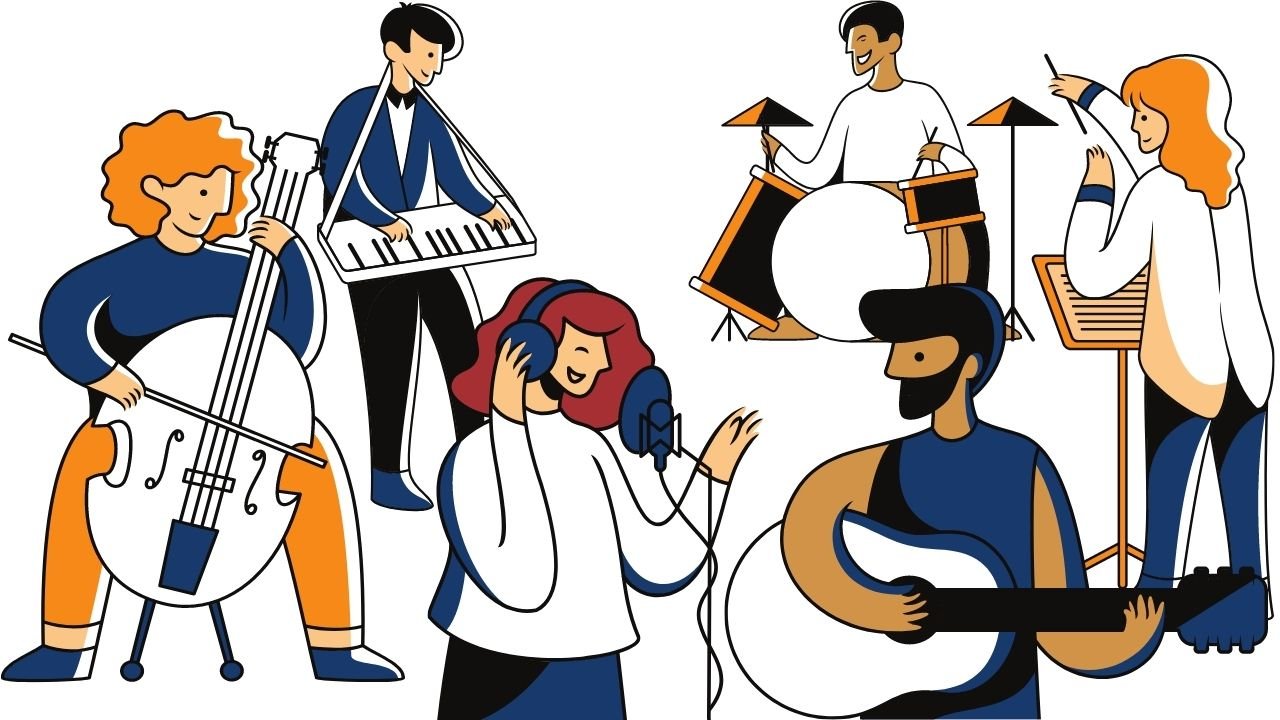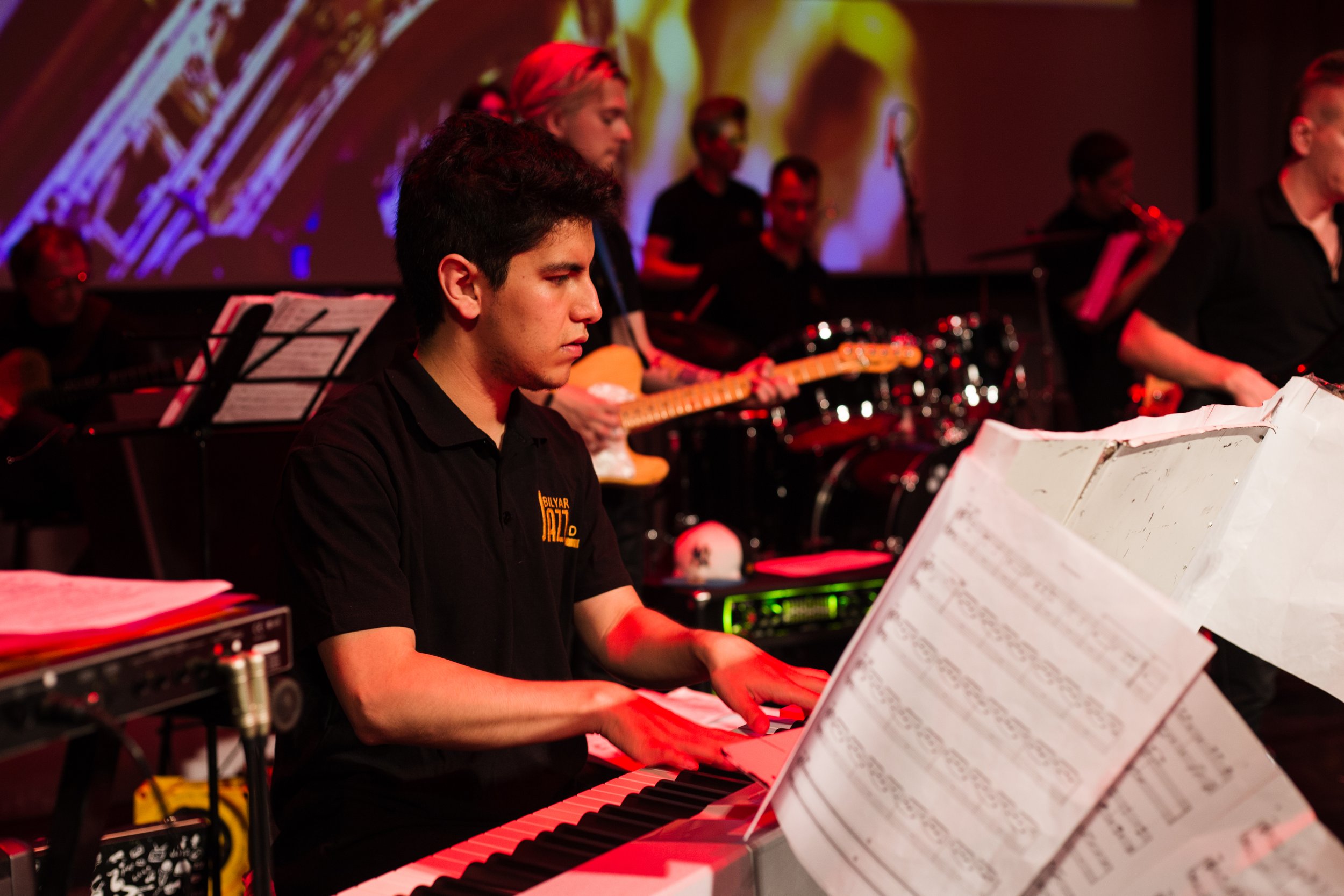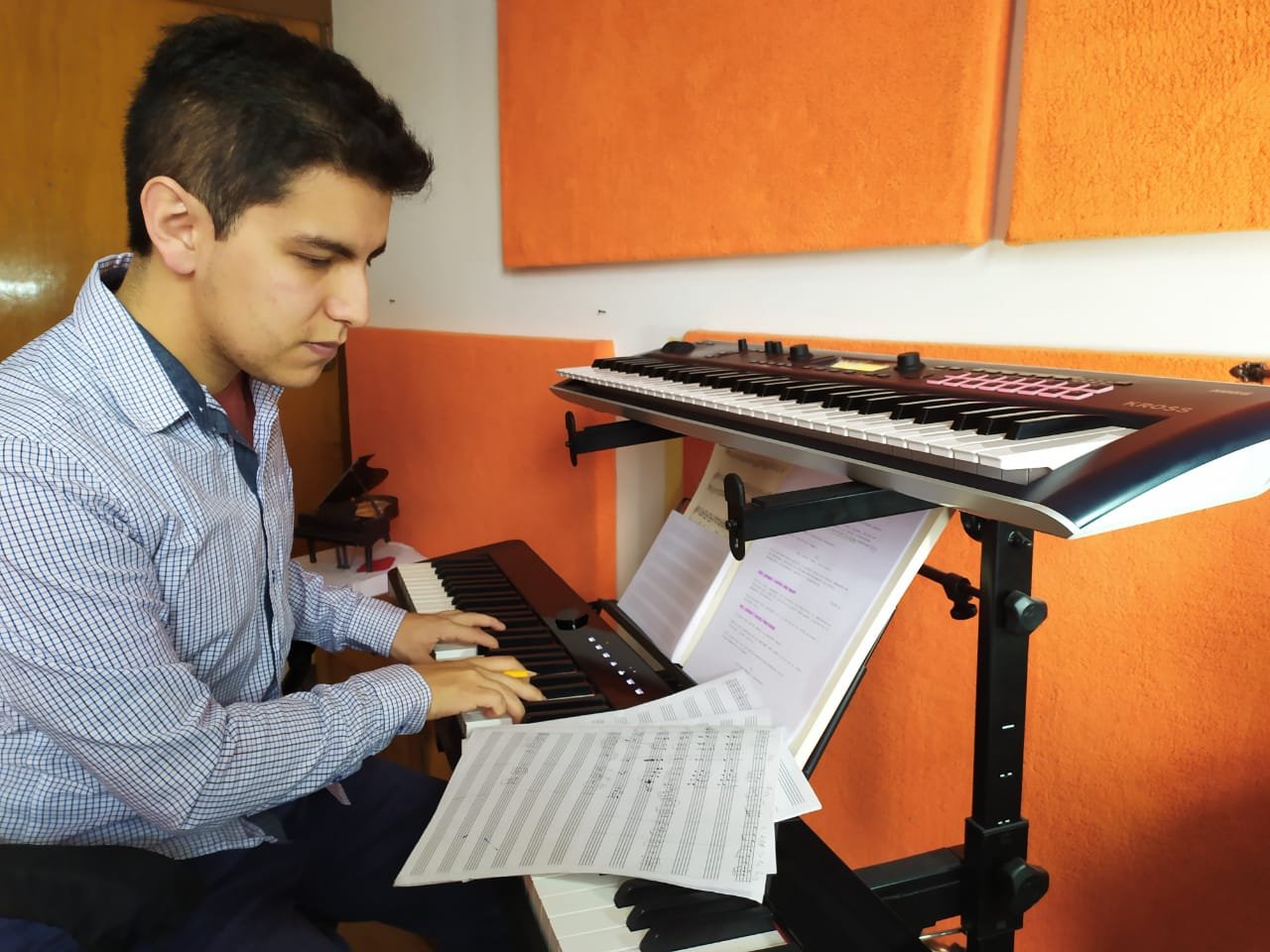Career opportunities for Musicians
5 Degrees in music and their different jobs
Disclosure: This site contains affiliate links to products. We may receive a commission for purchases made through these links. Our blog is reader-supported, for more information click here.
En | Es
People who are dedicated to music divided into at least three types:
Those who at some point in their lives fell in love with an instrument that led them to the world of music.
Those who throughout their lives listened to music at home because their relatives were musicians and inevitably ended up following those steps.
Those who are musicians and would like to quit, but don't know what else they could do.
Many of us started out as part of the first group and believed that a musician was someone who played an instrument, we thought that studying music meant having a teacher who was going to teach us how to play better or faster, but the truth is that many are surprised when they enter the university, because it turns out that it is very different from what was expected.
It is at the university where the discovery of the different job possibilities that a professional musician has, begins. Let's talk a little about the most common ones.
Instrumentalist
These are the musicians who are dedicated to perfecting their skill on an instrument or family of instruments. On many occasions the choice of instrument can be linked to a musical genre: the vast majority of saxophonists play jazz, as well as the vast majority of violinists play classical music, although today you can play the genre you want with the instrument of your choice. It all depends on what you like more. There are also the multi-instrumentalists, who are dedicated to playing more than one instrument. In many cases they are usually collectors who master similar instruments but from different parts of the world, such as different flutes or also different types of guitars.
Skills:
To be an instrumentalist you need to know your instrument very well, be able to play the different dynamics and at different tempos. Having a very well-trained ear and good sight-reading are essential skills. Find scenarios to play, whether orchestras, bands or competitions will serve to enrich your experience as an instrumentalist.
Jobs:
The interpreters can act in different fields depending on their training, the symphony orchestras are usually the space to which a classical musician aspires, just as the Big Bands are for those who are dedicated to jazz. Being a soloist or concert artist is an option that involves nerves of steel and a lot of charisma, there is also the possibility of working as a session musician and recording the songs or compositions of other musicians. Forming your own band, duo, quintet or orchestra is a way of being independent.
2. Composer
We composers are musicians who dedicate ourselves to writing the music we hear in theaters, cinemas, stadiums, radio and streaming platforms. We usually start our career playing an instrument and, although in most cases it is the piano, it doesn't matter what instrument it is as long as you have the theoretical foundations of composition. There are composers who dedicate themselves exclusively to writing music for a specific genre, but more and more of us are exploring different possibilities within composition, from classical music, through jazz and folklore to experimental music with electronic elements.
Skills:
To be a composer you need to understand how music is structured, that is, what sections or parts make it up, also understand how it is conducted through time with harmonic progressions and rhythm, as well as understand the different possibilities of melodic transformation that allow developing better your ideas. Knowing the instruments for which you compose is fundamental, writing for wind instruments that depend on breathing is not the same as writing for percussion instruments. Knowing how music is written so that anyone can read it is essential and knowing some music notation software can help with that.
Jobs:
The jobs you can get as a composer just depend on how far your creativity goes. You can write music for film productions, television or video games. Starting a career by working as an assistant to another composer is a great way to earn income and learn in the process. Commissions are one of the most common jobs for composers, these commissions can be for musical groups, for dance companies or even for companies or entities that want to have a hymn or a sound brand for their marketing strategies.
3. Songwriter
Within the group of composers are the songwriters. This specialty integrates music and literature in song form. This profession is deeply linked to the personal tastes of the songwriter, even when they do not compose for themselves but for others. The instrument of choice for songwriters is often the guitar (the ukulele is more popular these days), but like songwriters, this is not a rule and you can write songs no matter what instrument you play.
Skills:
Studying the songs of other songwriters is one of the first steps in writing a song. Although most songwriters write from inspiration, there are techniques that allow composers to make songs in a more conscious way, such as understanding the structure and the parts in conjunction with their harmony and the melody of the voice are techniques that can help to write your songs. For the construction of the lyrics of the songs it is necessary to have a rich vocabulary, for that it is recommended to read a lot of literature.
Jobs:
Being independent is the favorite job of songwriters, although it implies generating your own audience and looking for ways to promote yourself, however there are more options if you like to write songs: composing jingles or short songs for radio or television is a job that it is usually well paid, writing songs for other artists or groups, as well as for movies and musicals, are usually commission jobs in which songwriters play an essential role.
4. Music Production
A music producer must know both music and audio engineering as well as being the bridge between artists and different music marketing platforms. A producer usually sees music from a commercial point of view and they must know the best way for the music to communicate with a specific audience. In terms of musical genres, the producers are quite flexible, but it is always advisable to specialize in the genre that you like or listen to the most.
Skills:
A music producer must have basic concepts of music clear: harmony, rhythm, melody and timbre. A trained ear is necessary, as well as a knowledge of current recording technology: recording software, audio cards, microphones, plug-ins, etc. The producers are usually quite organized and have a clear work methodology so that time is used more efficiently. Being aware of trends and the music market must be a constant for a producer.
Jobs:
Most producers usually dedicate themselves to recording and producing music for other artists who come with an idea to materialize. Mixing and mastering are specialties within music production that are considered as different activities and therefore different jobs. Being a producer with an emphasis in sound engineering can open doors to work with a recording studio or production company. Opening your own studio or home studio is an independent work option that many producers choose today.
5. Orchestral Conducting
Orchestral conducting is a career that implies a vast knowledge of both music and general culture. Orchestral conductors are mainly divided into two groups: orchestral conducting and choral conducting. Today, orchestras not only perform classical music but also adaptations or arrangements of other genres, and this has led conductors to explore beyond academic music. The piano is the recommended instrument for this career.
Skills:
In addition to deep knowledge of music, a director must know the historical and social context of the music he performs as well as the biography of the composers. An ability to transmit ideas easily and concretely, generate a pleasant work environment and develop rehearsals in advance are characteristics that a director must have as the leader of a musical group such as an orchestra. Great conductors agree that the use of words during a rehearsal should be exclusive for those moments in which the baton is not enough to express oneself, for this reason it is important to have a polished orchestral conducting technique.
Jobs:
Conductor jobs are as plentiful as orchestras where you can find a head conductor and an assistant conductor. If there is no orchestra in your city, you can always be the first to form one, be it a symphony orchestra, symphonic band or a choir. Orchestral directors have positions in dance or theater companies that use live music for their functions and also in orchestras that are dedicated to the recording of soundtracks. A less frequent job is to be invited to dictate or be part of master classes for young directors.

























